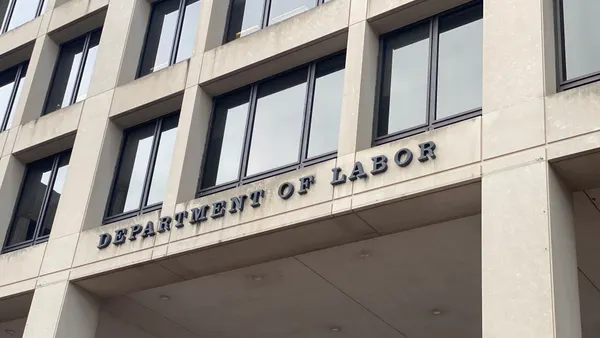Dive Brief:
- An appeals court in New York has concluded that Postmates couriers are employees entitled to unemployment insurance (In re Vega, No. 13 (State of New York Court of Appeals, March 20, 2020)).
- Postmates, according the court, is a delivery business that uses a website and smartphone application to dispatch couriers to pick up goods from local restaurants and stores and deliver them to customers in cities across the United States. Couriers are required to undergo a background check before starting work and are paid 80% of the fees customers pay to Postmates; Postmates pays the couriers even when the fees are not collected from customers.
-
The court concluded that "Postmates exercised control over its couriers sufficient to render them employees rather than independent contractors operating their own businesses." The company could not operate without the couriers, whose delivery assignments are controlled by Postmates. If a courier becomes unavailable, Postmates (rather than the courier, the court emphasized) finds a replacement. Additionally, "[t]he couriers' compensation, which the company unilaterally fixes and the couriers have no ability to negotiate, are paid to the couriers by Postmates" and Postmates "bears the loss when customers do not pay."
Dive Insight:
There's no one, single test for determining whether a worker is an independent contractor or an employee, but the determination often comes down to how much control an employer exerts — or has the right to exert — over the person's work and working conditions. The more control, the greater the likelihood (as in this case) the worker will be considered an employee.
The law in this area continues to evolve, generally in the direction of making independent contractor status more difficult to establish. In California, for example, a new worker classification test first adopted by the state supreme court was recently signed into law, the much-discussed and hotly debated AB-5. Companies that rely on gig workers, including Postmates, are working to challenge the law.
The effect of the novel coronavirus pandemic on the economy is likely to increase the demand for gig workers as companies look to stay afloat with less reliance on the expense and relative inflexibility of a traditional workforce entitled to benefits and, increasingly, paid leave. Small employers are reportedly particularly concerned about the financial impact of the Families First Coronavirus Response Act (FFCRA).











